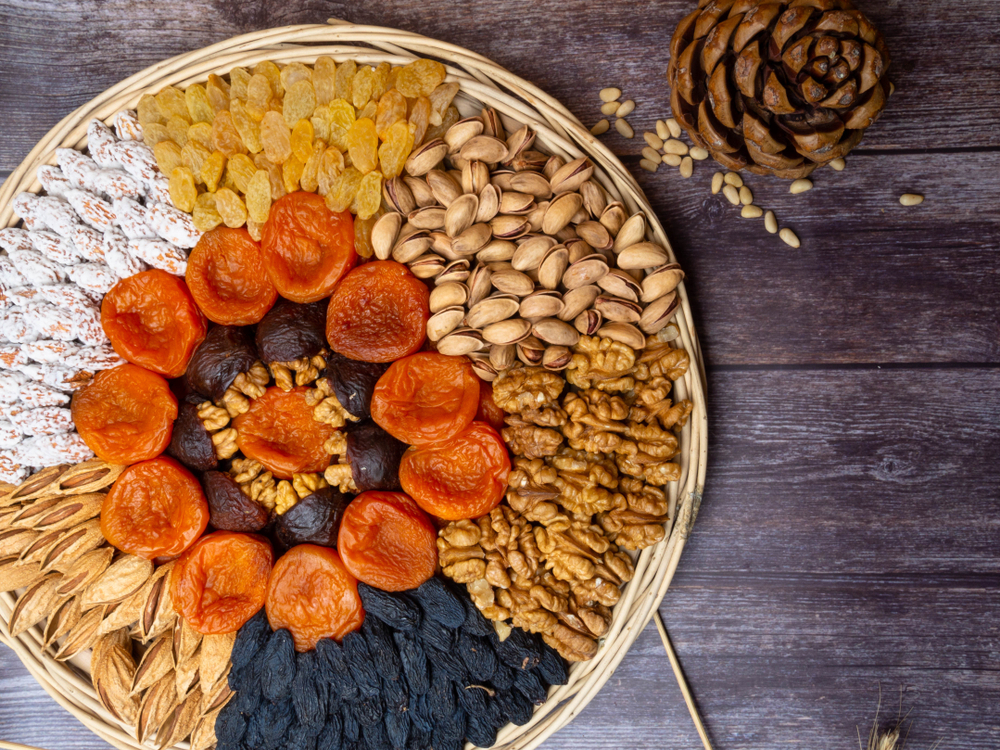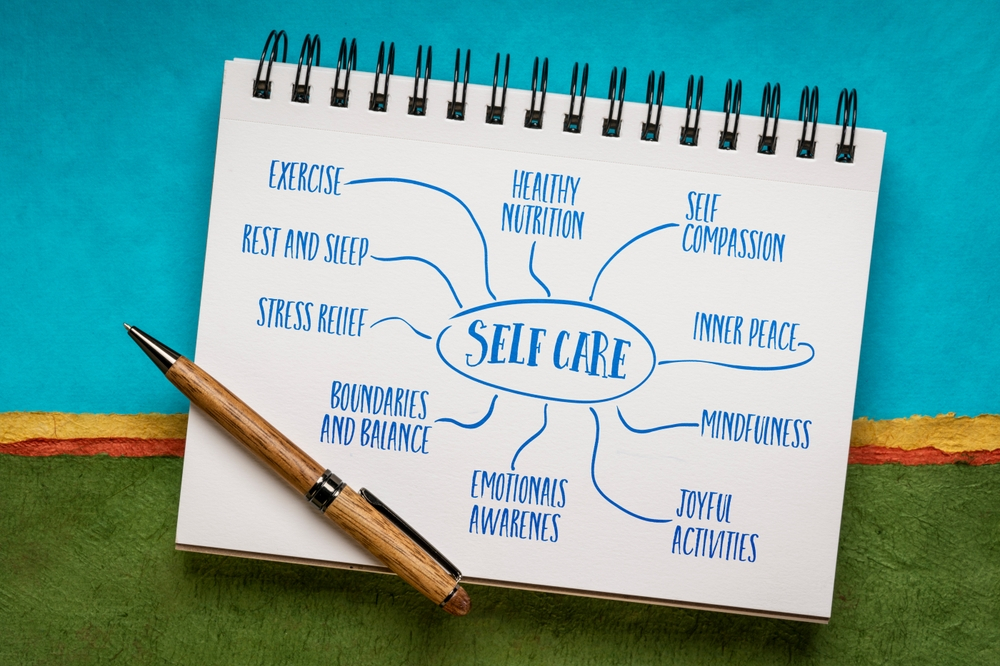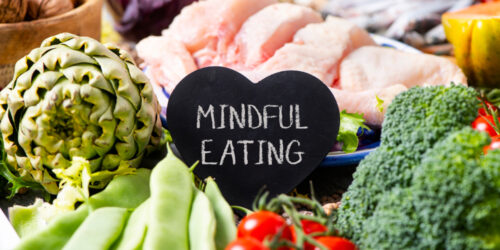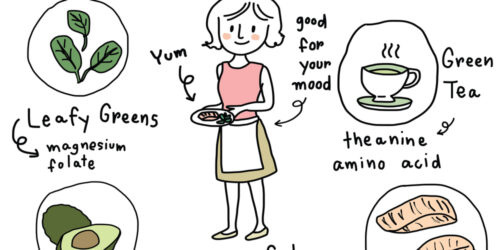Holistic Nutrition for Students: Nourishing the Mind During Exams

Table of Contents
As students gear up for exams, recognizing the significance of holistic nutrition, especially under the keyword “Holistic Nutrition for Students,” becomes paramount. Elevating mental clarity, focus, and overall well-being during this crucial period is integral to the academic experience. Juggling a nutritious diet alongside the rigors of study may pose challenges, but by adopting the right approach, students can enrich their minds and enhance exam performance through the principles of holistic nutrition. Let’s delve into how students can integrate holistic nutrition into their routines to bolster both mental and physical health throughout the exam season.
Understanding Holistic Nutrition
Feeding your body and your brain the right stuff isn’t just about avoiding junk food—it’s about embracing a way of eating that cares for every part of you. It’s called holistic nutrition, and the idea is simple: what you eat affects not only your physical health but also your mental sharpness, your concentration, and how well you can zoom in on those tricky exam questions. With a clever mix of natural, unprocessed foods, we can give our brains the VIP treatment they deserve, especially when study season hits its peak.
Defining Principles of Holistic Nutrition
When we talk about feeding our brains, it’s not just about munching on any food we find. Holistic nutrition looks at the whole picture. It’s all about eating the kinds of foods that honor and nourish every part of our bodies, including our busy brains, especially during the crunch time of exam season.
What makes this approach stand out is that it encourages us to think about food in a new way. Instead of just counting calories or worrying about weight, we turn our attention to the quality of the foods we eat. We aim to choose foods that are as close to their natural state as possible—think fresh fruits, veggies, whole grains, and lean proteins. It’s about finding the right balance to support both mind and body.
Impact on Mental Clarity and Focus
When you’re cramming for that big test, it’s tempting to reach for a candy bar or a can of soda to get a quick energy boost. But the foods you eat can have a big impact on how well your brain works. Holistic nutrition puts the focus on eating foods that help your mind stay sharp and clear, which is super important during exam time.
For instance, have you heard that fish is brain food? That’s because it’s full of good fats called omega-3 fatty acids which are like rocket fuel for your brain cells. Also, chowing down on fruits, veggies, and whole grains gives your brain a steady supply of energy. This means you can focus better and remember more of what you study. So, skipping junk food and picking smart snacks can really pay off when it comes time to tackle those tough exam questions.
Key Nutrients for Brain Health

When you’re hitting the books and the pressure’s on, feeding your brain the right stuff is like giving your mind a supercharge. Think of it this way: just as athletes need the right fuel to perform at their best, your brain needs a mix of nutrients to help you ace those exams. Let’s dive into the brain-boosting vitamins and goodies that’ll help keep your focus sharp and your memory on point.
Omega-3 Fatty Acids
When it comes to feeding your brain, omega-3 fatty acids are like premium fuel for your mind’s engine. Found in foods like salmon, flaxseeds, and walnuts, these good fats are key players in brain health. They’re essential, which means your body can’t make them; you’ve got to eat them.
Omega-3s help build cell membranes in the brain and are instrumental for learning and memory. So, when those books are open and your brain is chugging away during study sessions, omega-3s can be your brain’s best buddies. This isn’t just diet talk – science backs it up, with research showing these fats can improve mental skills and help protect against mental decline. Keep your inner genius well-oiled with a diet rich in these smart fats.
Antioxidants and Vitamins
Antioxidants and vitamins are like the superheroes of nutrition, especially when it comes to keeping your brain in tip-top shape. These mighty compounds fight against oxidative stress, which is just a fancy term for damage to your brain cells caused by pesky free radicals. This is super important during study sessions because healthy brain cells mean a more focused mind.
Vitamins like B, C, E, and K don’t just boost your immune system; they’re also crucial for cognitive function. For instance, B vitamins are known to help with energy production and reduce brain fog, making those late-night study marathons a bit easier to handle. To get your daily dose, munch on spinach, citrus fruits, nuts, and whole grains. So go ahead, add a splash of color to your plate and power up your brain!
Complex Carbohydrates for Sustained Energy
When it’s crunch time and you’re hitting the books hard, your brain is begging for a steady supply of energy. This is where complex carbohydrates come into the spotlight. Complex carbs are like those long-lasting logs you throw on a fire – they burn slow and steady, giving you the energy you need over a long period of time.
These aren’t your sugary snacks that crash your energy levels after a short boost. Instead, they break down gradually, keeping your blood sugar levels stable and your mind alert. Foods like whole grains, brown rice, and oatmeal are packed with these good carbs. They’re your brain’s best friend during exams, fueling your study sessions without the energy spikes and crashes that sweets cause. So, next time you take a study break, opt for a nice bowl of oatmeal or a whole grain sandwich – your mind will thank you!
Holistic Nutrition for Students: Practical Tips and Recipes

Exams are coming up, and if you’re a student, you know the pressure is on! But here’s the good news: you can actually eat your way to a sharper brain. A bunch of practical tips and super easy recipes are at your rescue. They say you are what you eat, so let’s make sure you’re feasting on food that fuels both your mind and body. We’re talking quick snacks that pack a punch and meals that are a breeze to whip up. Ready to boost your brainpower? Let’s dive into some tasty goodness that’ll keep you focused, full, and ready to conquer those exams.
Quick and Healthy Brain-Boosting Snacks
When hitting the books gets tough, snacking doesn’t have to be. Snacking smart is all about choosing foods that will help our brains perform at their best. Nuts like almonds and walnuts are packed with essential fats that our brains love, and they’re easy to munch on between chapters. But nuts aren’t the only heroes; even dark chocolate has benefits. It’s full of antioxidants and has a bit of caffeine to keep you alert.
What’s more, you don’t have to prep for hours to get your snack on. Think about fruits like blueberries and oranges — nature’s candy, brimming with vitamins and fiber. Or how about whipping up a smoothie with yogurt for protein and a few greens for an extra nutrient kick? Simple, quick, and oh so tasty, these snacks help turn you into a memory whiz, keeping you focused and energized without missing a beat.
Easy-to-Prepare Nutrient-Rich Meals
When cramming for those big tests, it’s super tempting to reach for quick fixes like fast food or microwavable meals. But, let’s be real – your brain needs much better fuel than that to ace those exams. Putting together meals that are loaded with nutrients doesn’t have to eat up all your study time. With some simple planning and easy recipes, you can whip up dishes that are not only brain-friendly but also kind to your clock.
Think about meals that combine lean proteins, veggies, and whole grains all in one go. For example, a grilled chicken breast with a side of quinoa and steamed broccoli can be made in under 30 minutes. Or, consider a colorful stir-fry with tofu and mixed veggies tossed over brown rice. These kinds of meals pack a punch of vitamins, fibers, and minerals, giving your brain a well-rounded feast to help it focus and retain information. Keep it straightforward and wholesome, and you’ll be setting yourself up for success.
Mindful Eating Practices for Stress Management
When exams are right around the corner, stress levels can shoot through the roof. That’s when mindful eating steps in as a superhero for stress relief. It’s not just about what we eat, but how we eat. Slowing down and paying attention to the food on your plate does wonders for your mind. Think of it as a pit-stop for your brain to refuel and recharge, not just with nutrients but with a sense of calm and focus.
Taking the time to savor each bite can make a huge difference in your stress levels. Try this: when you eat, just eat. Sit away from those books and notes, turn off your gadgets, and focus on the flavors and textures in your mouth. It’s a moment to relax, to breathe, and to be present with your meal. This break from studying can reset your brain, making your study sessions more productive when you get back to hitting the books.
Incorporating Holistic Nutrition into Student Lifestyle

Blending smart eating habits with school life can seem like a giant puzzle, especially when your brain’s about to pop with exam facts. But it’s downright possible, and super important, to invite holistic nutrition to your study sessions. This way, you’re not just munching on facts, but you’re also fueling your brain with the good stuff to help you nail those tests. Let’s dive into ways to make eating right and acing exams go hand in hand, without blowing your budget or your schedule.
Balancing Study Time with Cooking and Meal Preparation
Juggling between hitting the books and cooking might feel like running a marathon, but it’s totally doable with a bit of planning. Setting aside specific times for meal prep ensures that you won’t be scrambling for food when hunger strikes. It also guarantees that your brain has a steady supply of good nutrients that keep it humming along.
Instead of lengthy cooking sessions, opt for batch cooking on the weekend or on days with lighter study schedules. This way, you can whip up several meals in one go, freezing portions for those days when studying takes up most of your time. Remember, a well-fed brain is a focused brain, and with delicious, healthy meals ready at hand, you’ll be all set to ace those exams with flying colors.
Healthy Eating on a Budget
Eating well doesn’t have to break the bank, and this is super important for students whose wallets may already feel a bit thin. Smart shopping and meal planning are the superheroes here. Begin by scouting for sales and discounts at your local grocery stores; they can be your best friends when trying to eat right on a budget. Also, buying in-season fruits and vegetables not only saves money but also ensures you’re getting the most flavor and nutrients.
Bulk buying can be a game-changer, especially for non-perishable items like beans, rice, and nuts. These foods offer great nutritional value while also being wallet-friendly. But remember, while scooping up deals, be mindful not to over-purchase. It’s no bargain if it goes to waste. Stick to a list and plan your meals in advance. You’ll be surprised how much you can save and still be able to fuel your brain with the good stuff!
Creating a Supportive Nutrition Community
When it comes to eating right, especially during those all-important exam seasons, having a circle of friends or peers who share the same goals can make a huge difference. A supportive nutrition community not only provides motivation but also acts as a resource for sharing recipes, tips, and encouragement. Imagine a group chat where instead of memes, you’re exchanging smoothie recipes or snapping pictures of your latest healthy meal prep!
Building this community can start small; it could be a study group where everyone brings a healthy dish to share, or an online forum where you swap ideas for affordable, brain-boosting foods. Tapping into this collective wisdom not only helps you stay on track with your meals but also makes the journey more enjoyable. So, team up with classmates, roommates, or reach out to online communities – whatever it takes to keep those healthy vibes flowing.
Holistic Nutrition and Self-Care

When we talk about doing our best during exam season, it’s not just about hitting the books hard; it’s also about taking good care of ourselves. Self-care is a big part of holistic nutrition—after all, what we eat affects not only our bodies but also our minds. Embracing self-care through mindful nutrition choices helps us manage stress, stay focused, and feel mentally sharp for those all-important exams. It’s about finding a balance that supports both our physical and mental health, from the food we put on our plates to the way we take time to relax and recharge.
Mindfulness and Meditation for Stress Reduction
When the books pile up and the exam countdown begins, stress can take a front-row seat in a student’s life. However, embracing mindfulness and meditation can turn that stress into a whisper instead of a shout. Mindfulness is all about living in the moment and realizing what’s happening around and inside of us without letting our emotions run the show. It’s like hitting the pause button on life’s remote control, to take a deep breath and just ‘be’.
Turning to meditation, it’s a process that invites tranquility into the mind, which might seem like a rare guest during exam times. Starting with just a few minutes each day, meditation can lead to improved focus and a quieter mind. This practice isn’t about clearing the mind of thoughts; it’s about learning to observe them without getting caught up in the drama. Consistent meditation can reduce exam anxiety and boost memory, both of which are pretty handy when facing a stack of tests. So why not give it a try? A more peaceful mind could be just a few deep breaths away.
Physical Activity and Its Connection to Mind-Body Wellness
Physical activity isn’t just about building muscles or shedding those extra pounds; it’s a critical component for well-rounded well-being, especially for students during exam season. Regular exercise releases endorphins—those feel-good hormones—that play a vital role in reducing stress and increasing happiness. It doesn’t have to be a grueling gym session; even a brisk walk or a quick dance party in your room can uplift your mood and sharpen your focus.
Moreover, when you’re active, your body works better as a whole. It’s like turning on a switch that improves blood flow, ensures a steady supply of oxygen flooding your brain, and helps in the production of new neural connections. What’s amazing is how this physical investment pays dividends in mental clarity and memory retention, which are super valuable when you’re trying to ace those exams. Pairing mindful eating with regular physical activity lays down the foundation for students to thrive academically and personally.
Conclusion
In the high-stakes world of student exams, holistic nutrition presents a powerful opportunity for students to prioritize their well-being and academic success. By understanding the principles of holistic nutrition, embracing brain-nourishing food choices, and integrating practical tips into their daily lives, students can navigate the demands of exams with enhanced mental clarity and resilience. Let’s encourage students to nourish their minds with holistic nutrition, setting the stage for a healthy, balanced approach to academic achievement.
FAQs
Q1: What is good brain food for exams?
A1: Good brain food for exams includes items rich in nutrients that support cognitive function. Some examples are fatty fish like salmon (rich in omega-3 fatty acids), blueberries (antioxidants), nuts and seeds (for vitamin E), and dark chocolate (flavonoids and caffeine in moderation).
Q2: How can I improve my brain for exams?
A2: Improving your brain for exams involves maintaining a healthy lifestyle. This includes regular exercise, sufficient sleep, staying hydrated, and consuming a balanced diet with foods that support brain function. Additionally, practicing mindfulness and managing stress can positively impact cognitive performance.
Q3: What are the best foods for brain study?
A3: The best foods for brain study include those that enhance focus and concentration. Foods high in omega-3 fatty acids (found in fish), whole grains, fruits, vegetables, and dark chocolate can provide the nutrients necessary for optimal brain function during study sessions.
Q4: What should I eat before an IQ test?
A4: Before an IQ test, consider eating a balanced meal that includes complex carbohydrates (whole grains), lean protein, and healthy fats. Foods like eggs, whole grain toast, yogurt, and fruits can provide sustained energy and help maintain focus during the test.
Q5: What foods boost IQ?
A5: While there is no specific food that guarantees an increase in IQ, a balanced and nutritious diet can support overall cognitive health. Foods rich in omega-3 fatty acids (fish), antioxidants (berries), vitamins (fruits and vegetables), and minerals (nuts and seeds) can contribute to brain health.
Q6: How to improve brain IQ level by food?
A6: Improving brain IQ level involves adopting a long-term, healthy eating pattern. Include a variety of nutrient-dense foods in your diet, such as fatty fish, nuts, seeds, fruits, vegetables, whole grains, and lean proteins. Stay hydrated and avoid excessive consumption of processed foods, sugars, and unhealthy fats to support cognitive function over time.
Useful resources
- Brain-Boosting Foods:
- Brain Health Tips for Exams:
- Nutrition for Cognitive Function:
- IQ and Nutrition:
- Website: Psychology Today – Nutrition and IQ








Its like you read my mind You appear to know so much about this like you wrote the book in it or something I think that you can do with a few pics to drive the message home a little bit but instead of that this is excellent blog A fantastic read Ill certainly be back
Thank you for your kind words; we’re delighted that you enjoyed our blog, and we’ll certainly consider incorporating more visuals to enhance the reading experience.
I loved it as much as you’ll end it here. The sketch and writing are good, but you’re nervous about what comes next. Definitely come back because it’s pretty much always the same if you protect this walk.
Thank you for your positive feedback on the sketch and writing; I appreciate your encouragement to come back and continue refining this project, and I’m committed to delivering even better work in the future.
Can you be more specific about the content of your article? After reading it, I still have some doubts. Hope you can help me.